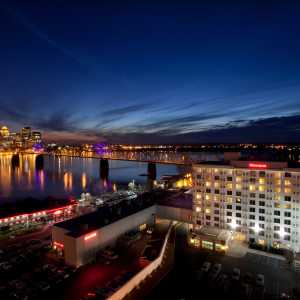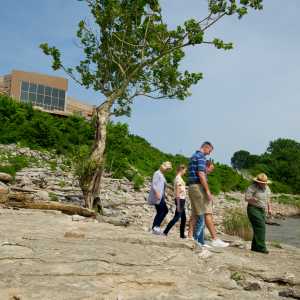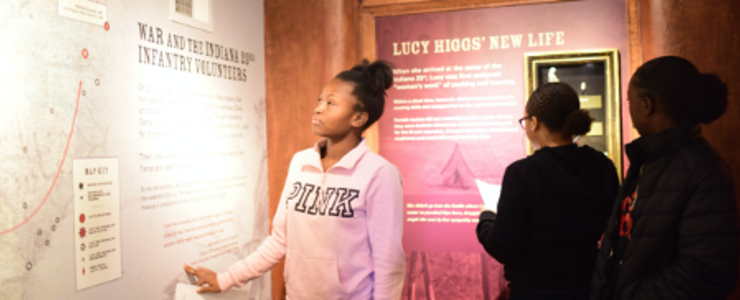
African American history in Southern Indiana is full of contradictions. On one hand, Indiana was the proverbial promised land for those escaping the clutches of slavery. On the other hand, what was waiting on the north shore of the Ohio River wasn’t always friendly or compassionate to those fleeing enslavement.
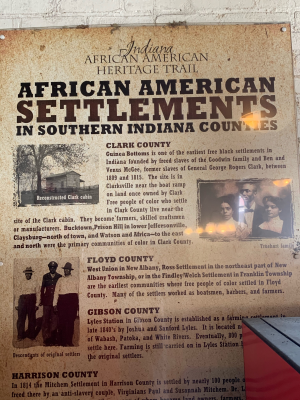
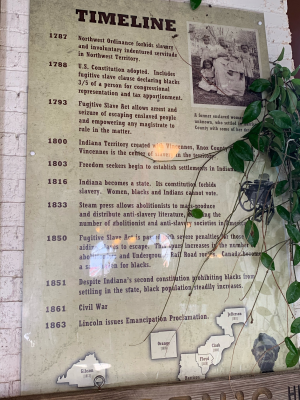
You can learn about the Black experience at Big Ben's D & M Restaurant at the Depot in Jeffersonville, where posters tell the history of African American’s quest for freedom in Clark County and the surrounding area. Each poster tackles a different set of information. Important figures, notable moments, a timeline of noteworthy events, the first African American settlements and land purchases are detailed.
One of those important dates was when Indiana became a state in 1816. At the time, some Indiana residents kept people as personal property even though the constitution forbids slavery. And although it was prohibited, enslaved people were not technically free for many years afterward. Even then, along with white women, Black people and Indigenous people were not allowed to vote or participate in the system that made laws governing their lives. In fact, upon the ratification of the second constitution of the state of Indiana, black people were technically not allowed to settle in the state. They were only allowed to pass through.
Around this time, the Fugitive Slave Act passed, making it a crime to help anyone escape enslavement. The penalties were most severe for those trying to escape. Those who participated in the Underground Railroad or helped in any way, faced fines or jail time.
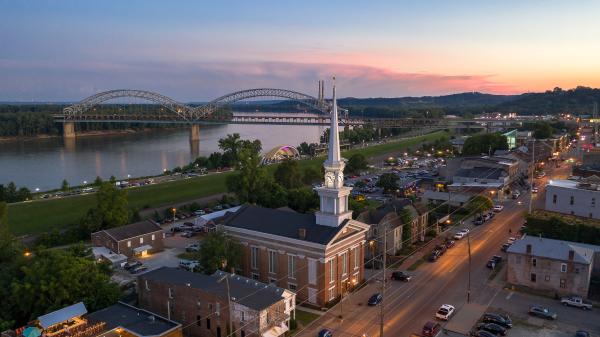
Despite the danger, the Black population increased, and sanctioned settlements popped up, particularly near the homes of Quaker communities, which have a storied history of participating in the Underground Railroad.
Southern Indiana serves a unique role in the relationship between the northern and southern United States. We are a gateway, a passage and a hub for many of the events that shaped and continue to shape this country.
As we mark another Black History Month, it is important to remember our history, both good and bad. It is equally important that we face it with honesty and humility to move forward and truly create the “more perfect union” that our federal constitution asks of us. It is an attainable goal. In Southern Indiana, and around the nation, recommitting ourselves to that small task will continue to bring us closer to the dreams of those who came before us.
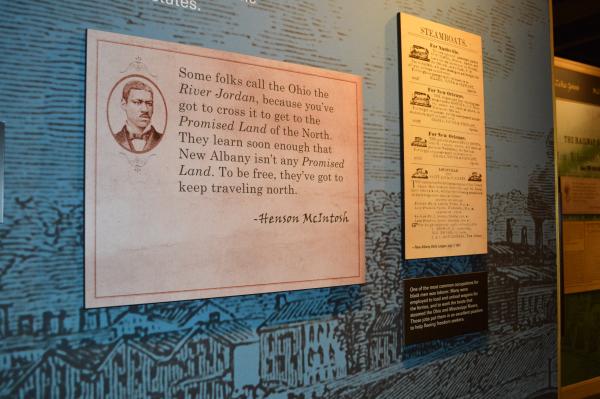
If you’d like to learn more, you can learn about the significant milestones of Black history at Big Ben's D & M Restaurant at the Depot. In addition, the Floyd County Library Cultural Arts Center has two permanent exhibits about the Black experience as well as a virtual one.
“Ordinary People, Extraordinary Courage: Men and Women of the Underground Railroad” tells the tale of New Albany’s Underground Railroad experience and reveals the contributions of ordinary people, both free and enslaved, who showed courage during that time.
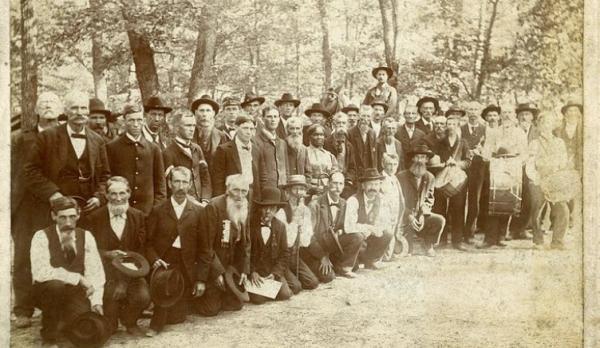
“Remembered: The Life of Lucy Higgs Nichols” guides visitors through Lucy’s life, from 1838 to 1915. Period documents and letters detail her life as a slave in Tennessee, a nurse during the Civil War, and her post-war life in freedom.
You can experience “A Reason to Remember: A Virtual New Albany Field Trip” in a special annex exhibit. This educational film tells Indiana history in collaboration with four other historic sites in New Albany: Town Clock Church, Culbertson Mansion, Scribner House and Division Street School.

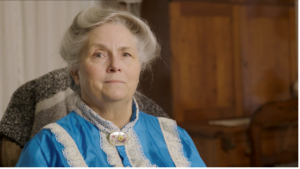
Carnegie Center staff member Delesha Thomas (L) and historic interpreter Mandy Dick (R) (portraying Hattie Scribner) are featured in A Reason to Remember: A Virtual New Albany Field Trip.
Black History Month Events
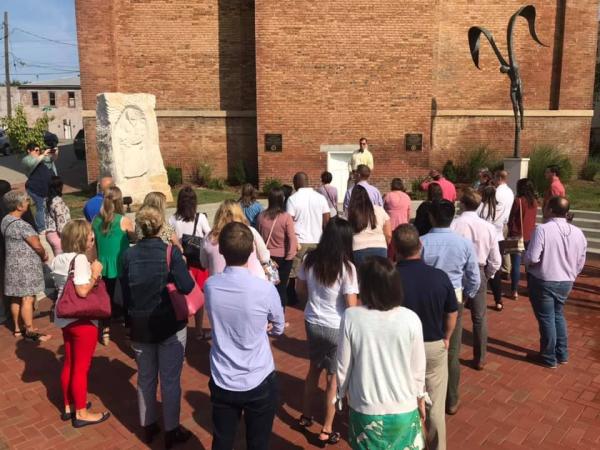
Underground Railroad Candlelight Prayer Vigil
1 – 2 p.m.
February 24, 2024
Second Baptist Church, New Albany
Take time this Black History Month to recognize the underground railroad history in New Albany. Pay homage to the enslaved women, children and men who risked their lives seeking freedom, as well as the brave abolitionists who risked their own lives assisting the enslaved on their journey to freedom. The Underground Railroad Candlelight Prayer Vigil at Second Baptist Church (also known as Town Clock Church) will take place at 1 p.m. on Saturday, February 24, includes a celebration of music, scripture readings and prayer.
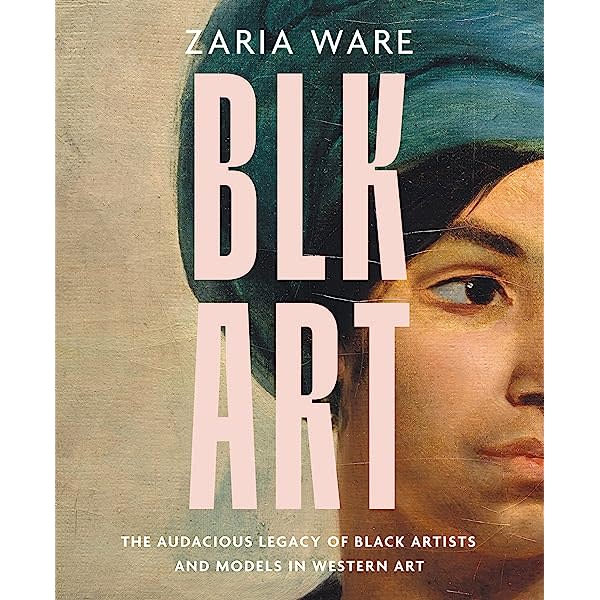
Art Tales Book Club: “BLK Art” by Zaria Ware
1 – 2 p.m.
February 24, 2024
Floyd County Library Cultural Arts Center, New Albany
Head to the Floyd County Public Library Cultural Arts Center for an art-inspired book discussion about “BLK ART: The Audacious Legacy of Black Artists and Models in Western Art” by Zaria Ware. “BLK Art” is a fun and fact-filled introduction to the dismissed Black artists and models who shook up the world. “BLK Art” elevates a globally dismissed legacy to its proper place in the mainstream art canon. From the hushed corridors of royal palaces to the bustling streets of 1920s Paris--this is Black history in honor of Black History Month. Patrons can pick up a print copy of the book at the Upper Customer Service Desk of Central Library.
Additional Resources:
- Town Clock Church of New Albany - This truly significant structure served as a beacon of hope to freedom seekers across the river. It was a connecting point between cities in a slave and free state, and a safe haven in a hostile environment on a long journey to freedom.
- Support Local Black-Owned Businesses
- Check out our blog for info on past events held to honor Underground Railroad Month.
- Go on a walking tour of historic sites of African American history in New Albany. Click the link or download the Discover Indiana app and search “New Albany: African American History.”
- African American History by County
- WHAS11 News shared “Moments That Matter” stories of African Americans and their impact on our communities of Louisville and Southern Indiana
- Visit Division Street School in New Albany. It was one of the first elementary schools for African-American children, with construction beginning in June 1884. By appointment only.
- Belle of Louisville River Boats - Steamboats and their connection to slavery and river connections to Black history.
List of Black Owned Businesses in the tourism industry of SoIN to support year-round:
- Baby Mae’s
- Big Ben’s D&M Restaurant
- Indi’s Chicken
- JR’s Fresh Spot
- Wacky Nachos and Mrs. & Mr. Cotton Candy
- Poppin' Flavors Gourmet Popcorn
- Q PINE BBQ Kitchen & Catering
- Taylor’s Cereal Bowl Kitchen
- Tx BBQ Lady
- Wink’s Homemade Ice Cream
- The Scoop Waffle & Sweet Shop
If there are other businesses to add to this list please reach out to Katerina@GoSoIN.com.


